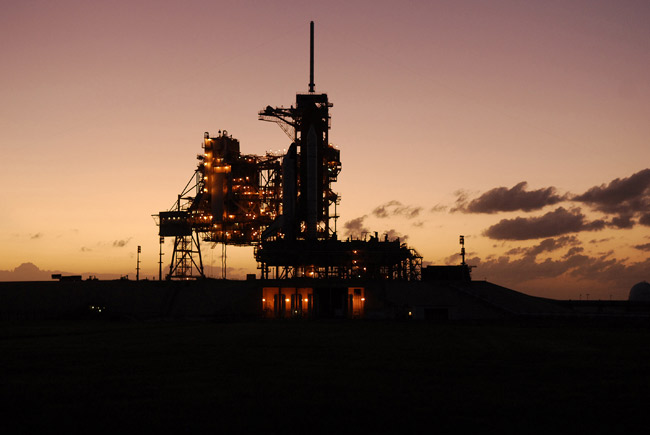Report: Space Shuttle Retirement Date in Jeopardy

WASHINGTON -The addition of an extra mission to NASA?s space shuttle flight manifest couldsignificantly reduce the chance of retiring the orbiter fleet in 2010 asplanned, possibly to as low as 5 percent, the Congressional Budget Office (CBO)said in a report released Monday.
The CBOstudied risks associated with delaying the space shuttle?s retirement and howthat would affect work on the replacement system - consisting of the OrionCrew Exploration Vehicle and the Ares I launcher - which is expected todebut in 2015.
The reportconcluded there was a 20 to 60 percent chance NASA would be able to fly all ofthe 10scheduled shuttle missions in the next two years. The addition of an 11thmission to transport the Alpha Magnetic Spectrometer to the space station, asCongress has directed, would reduce that probability to between 5 and 30percent, the CBO report said.
NASA plansto shift space shuttle program money to Orion and Ares after the shuttleretires, and has stated, according to the CBO report, that it might cancelshuttle flights not accomplished by September 2010. Meanwhile, the U.S. spaceagency continues to study options for speeding up the first Orionand Ares I flights by up to 18 months.
NASAcurrently is working toward a September 2014 debut for the new system, a targetsix months sooner than the March 2015 date it has promised the White House andCongress it can meet, budget permitting.
The CBOreport notes that until August, NASA had said there was a 30 percent chanceOrion and Ares I would be operational by September 2013 if an extra $1 billionwas added to the agency?s 2009 and 2010 budgets. NASA now says additionalfunding ?can no longer significantly change either the estimated date for orNASA?s level of confidence about its achievement of the [initial operatingcapability] milestone,? the report states.
The gapbetween the shuttle?s retirement and the first flightof Orion and Ares I could widen if NASA cannot keep Orion?s mass fromgrowing during development. Other issues that could delay Orion and Ares Iinclude a longer-than-expected development of AresI?s J-2X upper-stage engine, difficulties with the Orion?s heat shields andexcessive thrust oscillation in Ares 1?s first stage, the CBO report said.
Breaking space news, the latest updates on rocket launches, skywatching events and more!
The reportalso said a $577 million reduction in NASA?s 2007 funding prompted NASA toforego some robotic lunar surface exploration missions, which could delay plansto return astronauts to the Moon by 2020.
- Video - Mock Orion Capsule Crashes to Earth
- Video - NASA's Constellation Journey Begins: Part 1, Part 2
- Video - Back to the Moon with NASA's Constellation
Becky Ianotta is a former SpaceNews reporter covering space industry and policy news from 2008 to 2009. Becky earned a bachelor's degree in English/Journalism from the University of Miami. She spent five years as an editor with the Key West Citizen in Florida before joining the SpaceNews team. She later wrote for Air Force Times before taking her current position as communication director for Mother's Against Drunk Driving.
